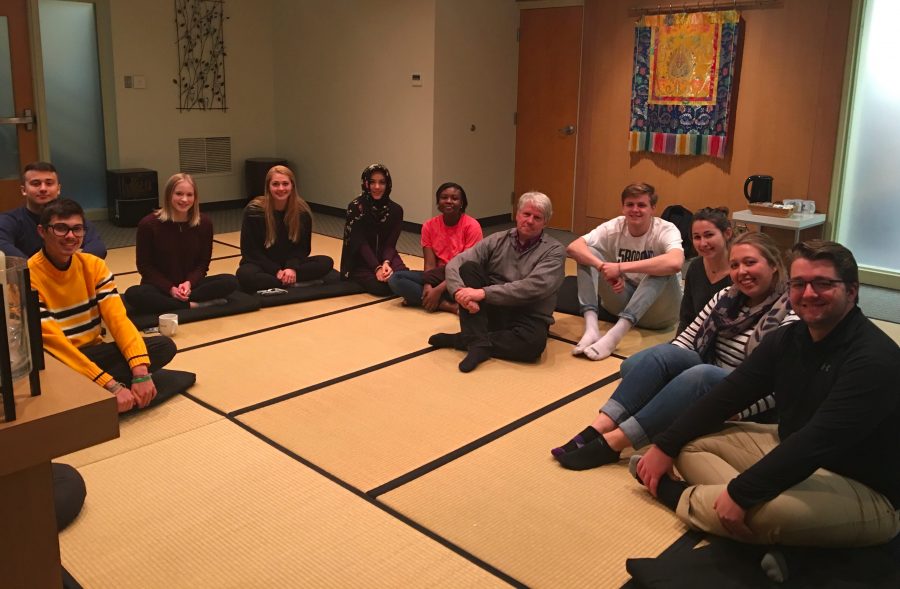On Nov. 29, Campus Ministry hosted its monthly SpiritualiTEA in Fava Chapel. This event was established as a way to promote interfaith dialogue and to invite students “from all spiritual backgrounds and identities to gather in a community to explore different spiritual practices and reflect over a cup of tea,” according to the event’s website. November’s event hosted by Campus Ministry Assistant Director the Rev. Scott Adams, focused on the Islamic faith. The speaker invited to discuss her faith was Shahirah Kahn ’19, president of the Muslim Student Association.
The attendees were invited to enjoy hot tea, and formed their discussion circle, which began with Rev. Adams asking what attendees we were hoping to get out of the event. Most said they wanted to better understand the Islamic faith and gain a sense of the Muslim community on campus.
Kahn’s goals were to provide some basic information about the Islamic faith and to correct some common misconceptions about the Islam. She began by showing the group the different positions Muslims assume when praying.
“We pray five times a day,” Kahn said. “It’s meant for us to stop and think about God and communicate with Him.”
Kahn also explained how, when she first came to campus, many people were curious about her faith.
“They would ask a lot of questions about my headscarf, like do I ever take it off, how many do I have, which is quite a few since I like to match them to my outfits, and if I wear my scarf in the shower,” she said, laughing off the last part.
One misconception Kahn cleared up had to do with Ramadan, where some believe that Muslims don’t eat for 30 days in a full fast.
“We fast during that time but we still eat. We eat before sunrise and then after sunset. It’s not about starving yourself, it’s actually meant to make you understand what it’s like to not have food,” she said. “There are so many people in the world without access to food, and I appreciate having to experience that in some way.”
Kahn has learned to welcome the questions because people are not usually trying to be spiteful or rude, they’re just uneducated or curious. One thing she tries to keep in mind is representing herself through her personality and character, not just her scarf.
“My scarf is a symbol of my faith, but it is not who I am,” she said.
Kahn encouraged the attendees to ask her questions, and one student asked where she goes to worship.
“There are no designated places for Muslims on campus,” she said. “I usually pray in my dorm or I have to find a mosque in Baltimore.”
Kahn wishes that Loyola would provide transportation to places of worship, since finding ways to get to a mosque is difficult. She also talked about how she would like to see more halal, a dietary restriction similar to kosher, options at the dining halls.
Another student asked about prejudice or animosity on campus. Kahn told us that people were mainly welcoming, but did have one experience.
“One time a student I didn’t even know approached me and asked if I supported ISIS. I don’t think they were trying to be spiteful, but they had their own preconceived notions about Muslims,” she said. “My response was that radicalism goes against the teachings of Islam, so I could never support that. Just because we identify with the same faith doesn’t mean that I agree with them.”

















































































































Anonymous • Dec 5, 2017 at 8:37 pm
3.5